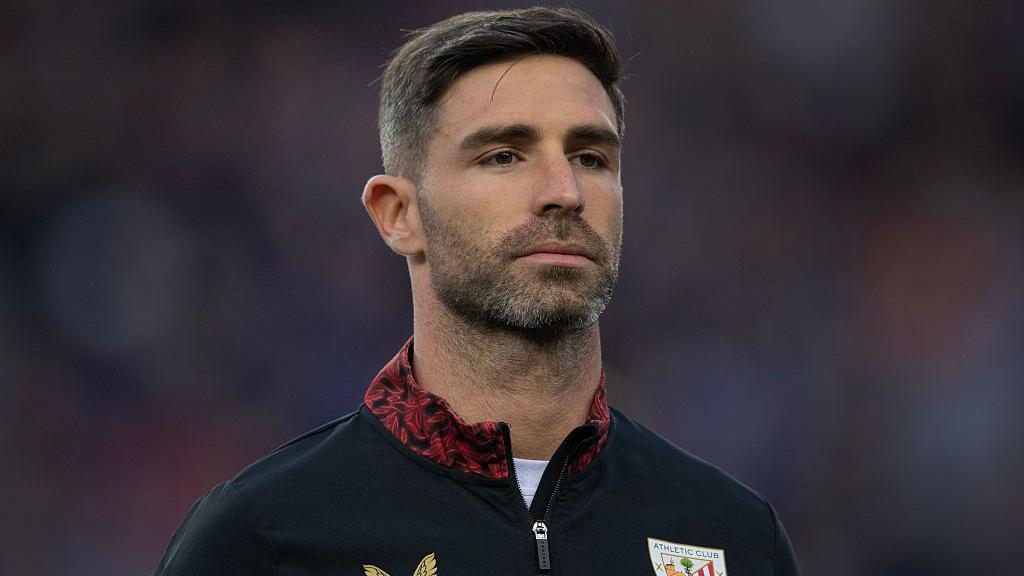Athletic Bilbao defender Yeray Alvarez has been banned for 10 months after failing a drugs test. He tested positive for canrenone after a Europa League match against Manchester United. Alvarez claims he mistakenly ingested the substance in hair loss medication. Uefa accepted his explanation but still found him guilty of a non-intentional anti-doping violation. He can play again from April 2, 2026, and train from February 2, 2026.
Athletic Bilbao's dependable defender, Yeray Alvarez, finds himself sidelined for ten months following a Uefa ban due to a failed drugs test. The repercussions stem from a test conducted after Bilbao's Europa League semi-final clash against Manchester United in May, a match they lost 3-0. The test revealed the presence of canrenone, a prohibited substance, in Alvarez's system.
Canrenone, classified as a diuretic, is sometimes employed as a masking agent, capable of concealing the presence of other performance-enhancing drugs. This characteristic raises serious concerns within the anti-doping community, leading to stringent regulations regarding its use.
Alvarez, aged 30, offered an explanation for the positive test result back in July. He claimed to have inadvertently ingested the substance through a preventative medicine he was taking for hair loss. According to Alvarez, the medication contained canrenone, unbeknownst to him.
The Spanish international has a history of health challenges, having been diagnosed with testicular cancer in 2016. As part of his ongoing treatment for alopecia, a condition causing hair loss, Alvarez stated that he had been using the aforementioned medicine. This personal context adds another layer of complexity to the situation.
Uefa, the governing body of European football, acknowledged Alvarez's explanation, accepting that he did not intentionally consume a banned substance. However, they still found him guilty of committing a "non-intentional anti-doping rule violation." This verdict highlights the strict liability principle often applied in anti-doping cases, where intent is not always a determining factor.
Given that Alvarez had already accepted a provisional suspension in June, the imposed sanction has been backdated to account for this period. This means that his ban will officially conclude on April 2, 2026, allowing him to resume playing from that date. Furthermore, he is permitted to rejoin training sessions with his Athletic Bilbao teammates from February 2, 2026, offering him a chance to regain match fitness and reintegrate into the squad.
Yeray Alvarez has been a stalwart for Athletic Bilbao, accumulating an impressive 257 appearances for the club since progressing through their youth academy. His dedication and commitment to the team have made him a popular figure among the Bilbao faithful. The suspension represents a significant setback for both the player and the club, as they will be without his services for a prolonged period.
The ban serves as a reminder of the importance of adhering to anti-doping regulations and the potential consequences of even unintentional violations. Athletes are responsible for what enters their bodies, and they must exercise caution when using medications or supplements. This case also highlights the complexities that can arise when medical treatments intersect with anti-doping rules, requiring careful consideration and transparency from all parties involved.
Alvarez's absence will undoubtedly be felt by Athletic Bilbao, who will need to find ways to compensate for his defensive capabilities and leadership on the pitch. His teammates and coaching staff will rally around him during this challenging time, providing support and encouragement as he serves his suspension and prepares for his return to football. The club and its supporters will eagerly anticipate his comeback, hoping that he can put this episode behind him and continue to contribute to their success in the years to come.
The incident is a cautionary tale for all athletes, emphasizing the need for vigilance and thorough understanding of anti-doping policies. It also underscores the importance of seeking professional advice and disclosing any medical treatments to relevant sporting authorities. While Alvarez's case may be considered "non-intentional," it still carries significant consequences, highlighting the unwavering commitment to maintaining a level playing field in sport.
